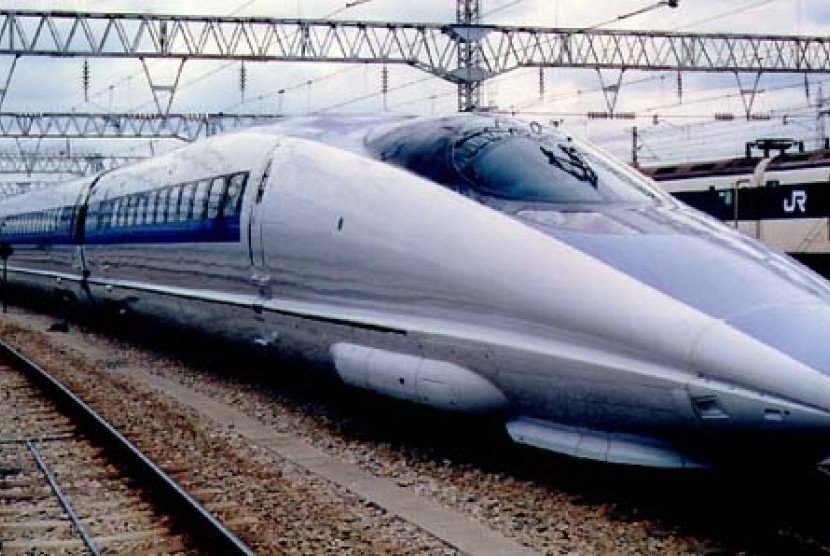REPUBLIKA.CO.ID, JAKARTA -- Japan has expressed its support towards the Indonesian government's plan to develop Shinkansen, a network of high-speed railway lines, to link Jakarta and Bandung.
"We welcome the plan (to develop Shinkansen). Establishing a Shinkansen network will offer speedy as well as safe travel," Deputy Cabinet Secretary for Public Affairs and Director of Global Communication of the Japanese Prime Minister's Office, Kenko Sone, said here in a lunch briefing during a break in the commemoration of the 60th anniversary of the Asian-African Conference (AAC) on Wednesday (22/4).
Japan has been operating the Shinkansen train for 60 years. "And not a single accident caused by a human has occurred," Sone stated, adding that the ones reported were a result of natural causes such as earthquakes.
Safety is the priority while operating the train, which travels at a speed of 300 kilometers per hour.
Moreover, Japan is now developing a successor for their Shinkansen called the Maglev, or magnetic levitation.
"Yesterday (April 21), we broke the world record of hitting 600 kilometers per hour with the Maglev," Sone revealed.
A Japan Railway Maglev train was reported to hit 603 kilometers per hour (374 miles per hour) on an experimental track in Yamanashi on Tuesday, April 21.
"It (technology) is always developing, and we are still developing," Sone remarked.
Japan Railway has been testing their train to figure out the best operational speed for a planned route between Tokyo and Nagoya, scheduled to begin service in 2027.
"We need a system that helps people commute in urban areas," he noted.
Earlier, Indonesia had allowed Japanese and Chinese investors to conduct a feasibility study for the development of high-speed train Shinkansen, which was planned to connect Jakarta and Bandung.
The Japanese investors completed work on their feasibility study of the high-speed train and presented it during a coordination meeting with the Coordinating Ministry of Economic Affairs.
Based on the study, the Japanese suggested that the railway network should link Jakarta with not only Bandung, but with Cirebon, Semarang and Surabaya, as well.
The Japanese offered a total investment of Rp60 trillion (on US Dollar = Rp13,000) for the project. While 16 percent of the investment will be from the government, 74 percent will be from the state's high-speed train enterprise, and 10 percent, from private funds, with 0.1 percent interest rate.
In addition, the study showed that the Financial Internal Rate of Return for the project was 0.97.
Moving at a speed of 300 kilometers per hour, the train will benefit people who live in Bandung and travel to Jakarta for work, and vice versa, by cutting down their commuting time from three hours to only thirty minutes.


